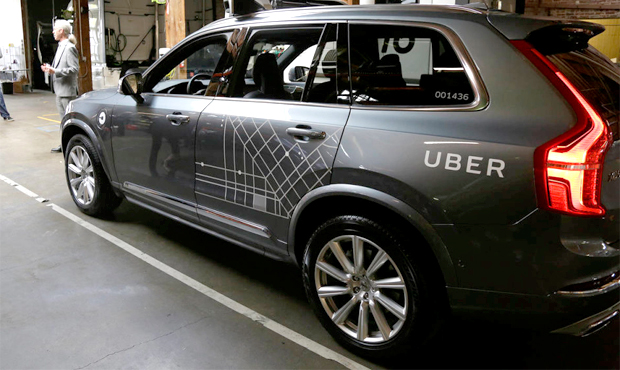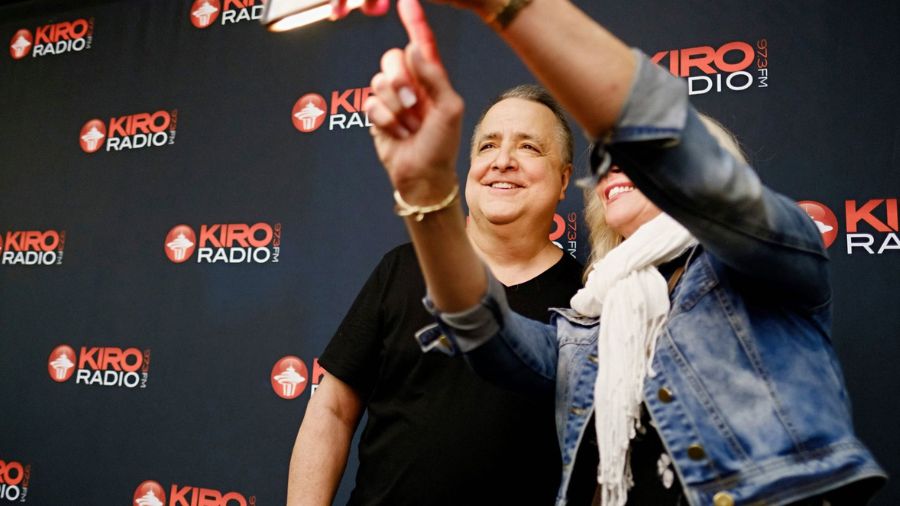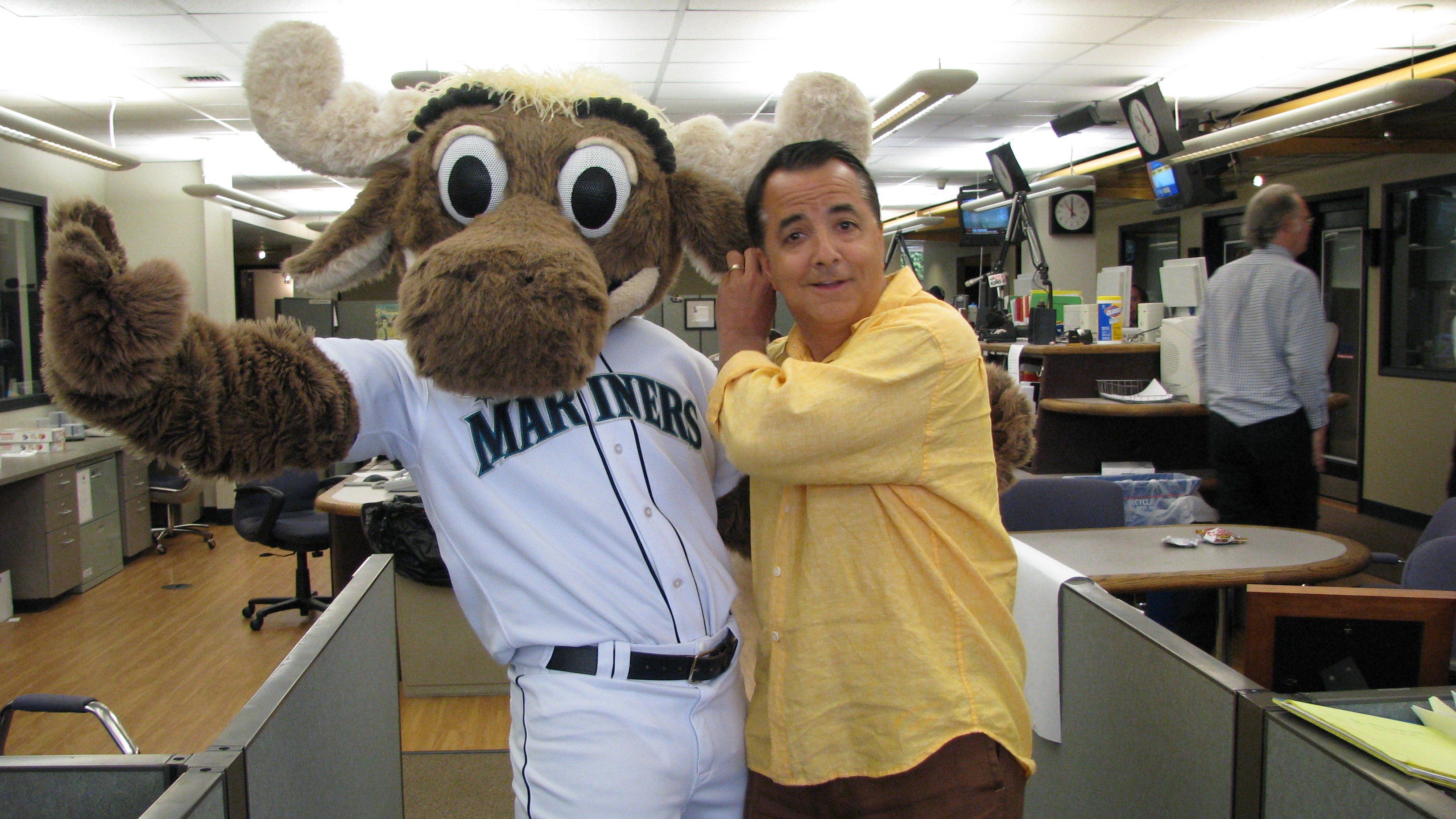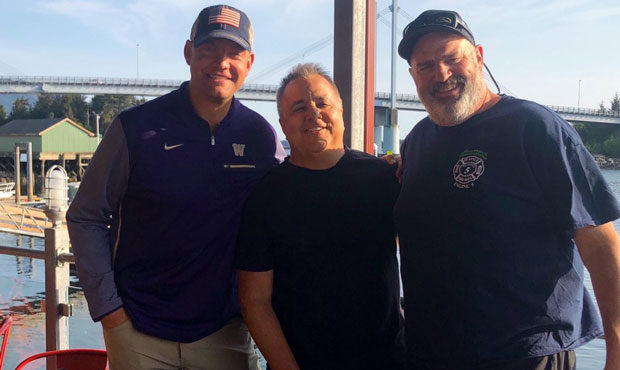Expert answers Dori’s questions about a driverless future
Nov 10, 2017, 6:11 AM | Updated: 7:46 am

An Uber driverless car is displayed in a garage in San Francisco. The company has been developing self-driving technology in anticipation of a driverless market. (AP Photo/Eric Risberg)
(AP Photo/Eric Risberg)
Bob Lutz knows a thing or two about the automobile industry. He began his career in the industry the 1960s and worked up to be General Motor’s vice chairman. Now, he’s taking his expertise and adding it to the growing voices predicting a driverless future.
RELATED: The plan to convert I-5 to driverless only vehicles
“Autonomous vehicles, when they are on the road, they will be like a train, then separate into individual modules and go wherever they have to go,” Lutz told KIRO Radio’s Dori Monson. “These modules are not going to be branded Ford, or Chevrolet, or Toyota. They are going to be branded, Uber, Lyft, or Maven.”
In a recent column in Automotive News, Lutz states, “It saddens me to say it, but we are approaching the end of the automotive era.” He predicts that within 20 years, travel won’t be through privately-owned cars, but through rented modules that will seamlessly move through traffic up to 150 miles per hour. It is similar to what others like Tony Seba have been saying. Lutz also predicts that governments will outlaw human driving on public roads to accommodate the driverless traffic.
But many are still skeptical of this driverless future.
Skeptical of a driverless future
While discussing the issue with Lutz, Dori had the following questions:
Question: Motorcycle riders love freedom and the experience. They won’t want to give up that experience. How will motorcycles fit in with this future?
Answer: I say good luck. When the feds outlaw it, you can take your bike to a private motorcycle track and use it there, but you will no longer be allowed to have it on a public highway. This is like gun control opponents who say they will have to pry my gun out of my cold, dead hands. Well, somebody is going to be prying his motorcycle out of his hands. It’s not going to be sudden. First, in the urban areas, that’s where private driving will be banned first. Then in suburbia, and in the open country, that will come in stages. Ultimately, human-driven vehicles will be banned everywhere except on private property.
Q: What about RV lovers or people who have boats and need to tow them?
A: These companies who supply modules will supply anything you want. If you want a module that has the power and towing capacity of a Ford F250 diesel, you just order up one of those. If you need a minivan module, you order up one of those. They will all be different power levels and lengths. Towing won’t be a problem.
*Lutz admits he hadn’t considered the towing problem entirely.
Q: How will this affect contractors like electricians and plumbers who carry tools and equipment in work vehicles?
A: Those are the kinds of people that are going to continue to own their own module. But it will be a standardized module that looks like all the others, that fits into the traffic flow, that can quickly and easily be integrated into the traffic … and they’ll use it like everybody else uses their modules. For the sake of convenience, because they have all their tools in it, that business will own that module. There will be well-to-do people, too, who will want to own the module, because they will want to leave their vacation stuff in it, or their kids’ soccer gear, so they’ll leave it parked in their garage and in their driveway. That will be minimal and they will not be driver-controlled.
Q: What about the love-affair with cars? What about people who love the freedom and joy of taking a drive?
A: Driving on a nice night is fine. Just order up a module, get your girlfriend in the seat next to you, uncork a nice bottle of wine, and tell the module to take a drive down highway so-and-so, take you past lake so-and-so. Make it a gentle two-hour trip. Dial in the music, dial in a movie and you are floating along in this module with your significant other, totally enjoying yourself and not having to worry about where the vehicle is going.
Driverless predictions
As new, driverless technology enters the automobile market, Lutz predicts that service providers like Uber or Lyft will replace private car ownership. It will be easier and cheaper to just order up a self-driving car (Lutz calls them modules because they won’t have controls or steering wheels) and get to where you need to go.
The insurance industry will take a hit. Jobs like truck drivers will be affected. Accidents are likely to go down. This will free up countless acres of land currently used to park cars that eventually won’t need to be parked — they’ll constantly be on the move.
“I’ll tell you what also goes away — dealers,” Lutz said. “Individual brand dealers.”
Eventually, governments will ban driving vehicles on public roads, he says, in favor of driverless traffic. Washington state may already be on the path to that future. The Washington State Transportation Commission is already considering plans to convert I-5 and other freeways to driverless only. Washington Governor Jay Inslee has already been courted by driverless advocates.
“Most people are going to be much happier sitting in a module that drives itself. They can watch a screen, email, listen to music, play games, or do whatever they want in that thing, including smoke a joint and so forth.”













